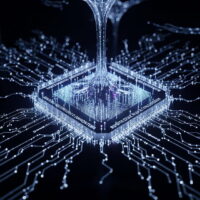In Islamic tradition, angels represent a foundational pillar of faith, embodying the intersection of divine command, spiritual reality, and human destiny. Created from light, or *Nur*, these beings are not symbolic or metaphorical but are understood as actual, conscious entities that exist in a realm beyond ordinary human perception. The Quran and the authenticated sayings of the Prophet Muhammad provide extensive detail about their nature, hierarchy, and ceaseless service to Allah’s will, forming a comprehensive angelology that is both intricate and central to a Muslim’s worldview. This guide delves into the multifaceted reality of angels in Islam, moving beyond a simple listing of names to explore their profound attributes, specific duties, and the inseparable connection between their existence and core Islamic beliefs about creation, revelation, and the afterlife.
The Nature and Core Attributes of Angels in Islamic Theology
The Islamic conception of angels is defined by a set of explicit, unwavering attributes that distinguish them from all other creation, including humans and jinn. These characteristics are not derived from philosophical speculation but are firmly rooted in primary Islamic texts, establishing a clear and consistent doctrine.
Creation from Light and Inherent Obedience
The most celebrated description of the angelic origin comes from a saying of the Prophet Muhammad, who stated, “The angels were created from light.” This establishes their essence as pure, luminous, and spiritual. Unlike humans, created from clay and endowed with free will, or jinn, created from smokeless fire, angels are beings whose very substance is a refined, sinless energy. A direct consequence of this creation is their absolute infallibility. They are incapable of disobedience, sin, or even error in carrying out divine commands. The Quran repeatedly affirms this, stating that angels are “honoured servants” who “do not disobey Allah in what He commands them and do exactly as they are commanded.” This perfect obedience is not a forced subjugation but the natural state of a being whose entire purpose and pleasure are aligned with divine will.
Genderless, Numberless, and Beyond Physical Limits
Angels possess no gender; referring to them as male (e.g., Jibril) is a linguistic convention of the Arabic language, not an ascription of biological sex. They are spiritual entities that can assume magnificent physical forms when required to interact with creation, as Jibril did when revealing the Quran to Prophet Muhammad, but they have no inherent physical bodies with needs or desires. Furthermore, their number is beyond human comprehension. The Quran mentions that on the Day of Judgment, “eight will carry the Throne of your Lord above them,” and in another verse, speaks of “nineteen” angels over Hell, but these are mere glimpses into a vast, uncountable host. Their abilities transcend physical laws; they can traverse cosmic distances instantly and operate across the seen and unseen worlds.
The Celestial Hierarchy: Key Angels and Their Divine Duties
While countless angels exist, Islamic texts specify several by name and rank, each entrusted with monumental responsibilities critical to the functioning of the universe and the journey of humankind.
- Jibril (Gabriel), The Angel of Revelation: The foremost angel, Jibril, is the trusted messenger between Allah and His prophets. His supreme duty was the gradual revelation of the Quran to Prophet Muhammad over 23 years. He is also described as the spirit of holiness who strengthened all prophets, including bringing glad tidings to Maryam (Mary) of the birth of Prophet Jesus.
- Mikail (Michael), The Angel of Sustenance is tasked with managing cosmic phenomena and providing sustenance to all creation. This includes directing rain, wind, vegetation, and the distribution of provision. He works in perfect harmony with the natural order decreed by Allah.
- Israfil, The Angel of the Horn: Israfil awaits the command from Allah to blow the trumpet, or Sur, twice. The first blast will signal the end of all creation and the Day of Resurrection, and the second will herald the raising of all souls from the beginning of time for judgment.
- Azrael, The Angel of Death (Malak al-Mawt): Responsible for extracting the souls of all living beings at the appointed time of their death. He does not act independently but carries out a divine decree with precision. The process differs for believers and disbelievers, as described in Islamic traditions.
- The Noble Recorders (Kiraman Katibin): These are the two angels assigned to every person—one recording good deeds on the right, the other recording bad deeds on the left. Their meticulous record forms the definitive book that will be presented to each individual on the Day of Judgment.
- The Guardian Angels (Al-Mu’aqqibat): In addition to the recorders, angels are appointed to protect human beings from harm by Allah’s leave, succeeding one another in shifts day and night.
- Munkar and Nakir, The Angels of the Grave: After burial, these two angels question every soul in the grave about its Lord, religion, and prophet. Their questioning is a preliminary stage of accountability before the final Judgment.
- Ridwan and Malik, Guardians of Paradise and Hell: Ridwan is the chief angel overseeing the blessings of Paradise, while Malik is the stern keeper of Hellfire, commanding the angels (Zabaniyah) who carry out its torments.
Angels in Daily Life and Worship: The Unseen Connection
The reality of angels is not a distant theological concept but one that intimately connects to a Muslim’s daily life, worship, and ethical consciousness. Their presence provides a profound sense of being observed, supported, and connected to the divine realm in ordinary moments.
Angels as Witnesses and Participants in Human Acts
Islamic teachings describe specific acts of worship and goodness that attract the presence and participation of angels. For instance, angels congregate in mosques during the dawn (Fajr) and afternoon (Asr) prayers, listening to the recitation of the Quran and supplicating for the worshippers. When Muslims gather in study circles to seek sacred knowledge, angels surround them, spreading their wings over them. Furthermore, angels consistently descend upon gatherings where Allah is remembered (dhikr), filling the space between heaven and earth with their presence. This belief transforms routine acts of worship into communal events with celestial beings, elevating their spiritual significance.
The Kiraman Katibin: The Constant Ethical Motive
The belief in the two recording angels seated on one’s shoulders is perhaps the most personally impactful aspect of angelology for a Muslim. They are not passive observers but precise scribes. The Prophet Muhammad described that the angel on the right records a good deed immediately, while the angel on the left waits for six hours after a sin is committed, hoping the person will repent and seek forgiveness before it is recorded. This concept, known as Muraqabah (awareness that Allah is watching), serves as a powerful internal moral compass. It encourages self-accountability, urging believers to be mindful of their actions, words, and even intentions at all times, knowing an immutable record is being compiled.
Angels in Major Events: From Revelation to the Hereafter
Angels are the primary agents through which Allah’s grandest plans are executed in the universe, playing central roles in events that shape human destiny.
Revelation and Prophetic Support
The entire Islamic revelation was delivered through the agency of Jibril. The Quran describes the process: “The Trustworthy Spirit brought it down upon your heart, that you may be one of the warners, in a clear Arabic tongue.” This interaction was not a one-time event but a relationship spanning decades. Beyond delivering verses, Jibril also taught the Prophet the rituals of prayer, fasting, and other acts of worship, and he would often appear in the guise of a companion to ask questions that would clarify Islamic law for the community. Other angels were sent to assist and strengthen the Prophet and his followers during critical moments, such as the Battle of Badr.
The Journey of the Soul and the Stages of the Afterlife
Angels shepherd the human soul through every transition of death and resurrection. At the moment of death, Azrael, possibly with a company of other angels, extracts the soul. For a righteous person, they come with glad tidings and a shroud from Paradise; for an evil person, their presence is harsh. Following burial, the questioning by Munkar and Nakir begins the soul’s posthumous journey. Finally, on the Day of Resurrection, Israfil’s trumpet blast will mobilize all of creation, and the countless angels will be active participants: presenting records, driving people to the gathering place, forming rows, and surrounding the Divine Throne. They will witness the final, ultimate judgment of every human being.
Contrasting Islamic Angelology with Other Traditions
Understanding what Islamic belief affirms about angels is clarified by understanding what it explicitly rejects from pre-Islamic or other religious narratives. This contrast safeguards the core Islamic principle of Allah’s absolute oneness (Tawhid).
Angels are Not Divine, Not to Be Worshipped
A fundamental tenet is that angels, despite their majesty, are created beings and are not deserving of any form of worship, prayer, or supplication directed to them. The Quran criticizes those who take angels as female deities or as divine intermediaries. Worship is due to Allah alone. Angels themselves would be the first to reject such devotion, as their entire purpose is to worship and obey Allah.
Angels Do Not Have Free Will or Rebel
Islam rejects the concept of a fallen angel like Satan (Iblis). Islamic theology clearly states that Iblis is not an angel but a jinn, a creation from fire who was elevated among the angels due to his piety but who then disobeyed the direct command to prostrate before Adam. This distinction is crucial because it preserves the infallibility of angels. Disobedience arises from free will and desire, attributes angels do not possess. Their nature is fixed in perfect submission.
Common Misconceptions and Clarifications
Several popular myths about angels circulate, even among Muslims. Clarifying these is essential for an accurate understanding.
- Do Angels Have Wings? Yes, the Quran describes angels with two, three, or four pairs of wings. However, these are not biological wings like birds but part of their magnificent spiritual form, perhaps symbolic of their speed, power, and ability to veil themselves.
- Can We See Angels? Normally, angels reside in the unseen world (Al-Ghaib). However, they can and have taken on physical forms by Allah’s permission. Prophets could see them in their true form, and they sometimes appeared to other righteous people in human form.
- Do We Have a “Guardian Angel”? While the concept of a single, lifelong guardian angel is not precisely described, the system of protective angels (Al-Mu’aqqibat) and recording angels provides constant divine oversight and protection for each individual.
- Are Angels and Jinn the Same? Absolutely not. They are distinct creations with different origins (light vs. fire), natures (obedient vs. possessing free will), and purposes. Jinn can be good, evil, or neutral, while angels are uniformly righteous.
- Should We Pray to Angels for Help? No. Muslims supplicate only to Allah. One can ask Allah to send angels for protection or support, but direct invocation of angels is a major sin considered association (Shirk).
Pro Tips for Deepening Your Understanding of Angels
Moving from basic knowledge to a deeper spiritual appreciation of angels requires a focused approach to study and reflection.
First, prioritize studying the primary texts directly. Read the verses of the Quran that mention angels with a reputable translation and accompanying exegesis (Tafsir) to understand the context. Similarly, explore the collections of Sahih al-Bukhari and Sahih Muslim for the authenticated sayings of the Prophet on the topic. Second, integrate the reality of angels into your daily mindfulness (Muraqabah). Before speaking or acting, cultivate the conscious awareness that the Kiraman Katibin are recording. This transforms theology into practical ethics. Third, learn the Islamic invocations (du’a) taught by the Prophet for protection, such as those recited before sleep or entering a house, which ask Allah to appoint angels as guardians. Fourth, be cautious of sources. Rely on classical scholarly works and reputable modern institutions for information, avoiding unverified stories, exaggerated tales, or artistic depictions that may distort the authentic Islamic view. Finally, let your knowledge inspire awe and gratitude. Reflect on the vast, perfectly ordered system of creation where angels tirelessly execute divine wisdom, and recognize your place within this magnificent cosmic framework as a human endowed with the unique gift of free will.
Frequently Asked Questions About Angels in Islam
Are angels mentioned by name in the Quran?
Yes, but only a few. The Quran explicitly names Jibril (Gabriel), Mikail (Michael), and indirectly names Azrael (as the Angel of Death) and Malik (guardian of Hell). Other angels, like Israfil, Munkar, and Nakir, are mentioned by name in the authentic sayings (Hadith) of the Prophet Muhammad.
Do angels feel emotions?
Angels experience emotions aligned with their purpose, such as love for believers and obedience to Allah. The Quran states that angels pray for forgiveness for those on Earth and express glorification and praise. However, they do not experience human emotions like anger, jealousy, or personal desire, which stem from the animal soul (nafs).
How do angels communicate with humans?
Typically, humans cannot perceive angels in their true state. Communication occurs either by Allah allowing the angel to take a visible form (often as a human) or by inspiration (ilham) cast into the heart or mind of the person. Revelation (wahy) to prophets is the highest, most direct form of this communication, delivered by Jibril.
What is the difference between an angel and a prophet?
They are completely different creations. Angels are spiritual beings created from light, without free will, who do not eat, sleep, or propagate. Prophets are human beings, created from clay, chosen from among mankind to receive revelation and guide their communities. Prophets have free will but are protected from major sin.
Does every person have angels that record their deeds from birth?
The recording begins at the age of moral accountability (bulugh). Islamic scholars differ on the exact starting point, but it is generally linked to when a child reaches puberty or demonstrates clear intellectual maturity. Before this age, deeds are not recorded for judgment.
Conclusion
The Islamic doctrine of angels presents a coherent and profound vision of an unseen, yet intimately connected, dimension of existence. Far from being mere mythological figures, angels are active, intelligent beings of light who form an essential component of a perfectly synchronized universe under Allah’s sovereign command. They bridge the divine and the human, delivering revelation, sustaining creation, recording deeds, and executing the divine will through every stage of life, death, and resurrection. For the believer, knowledge of angels fosters a mindful, ethical life, a sense of constant celestial companionship in worship, and a awe-inspiring appreciation for the complexity and order of Allah’s creation. Ultimately, understanding angels deepens one’s understanding of Islam itself—a religion that comprehensively addresses the reality of both the seen and unseen worlds, guiding humanity toward its ultimate purpose and destiny.










